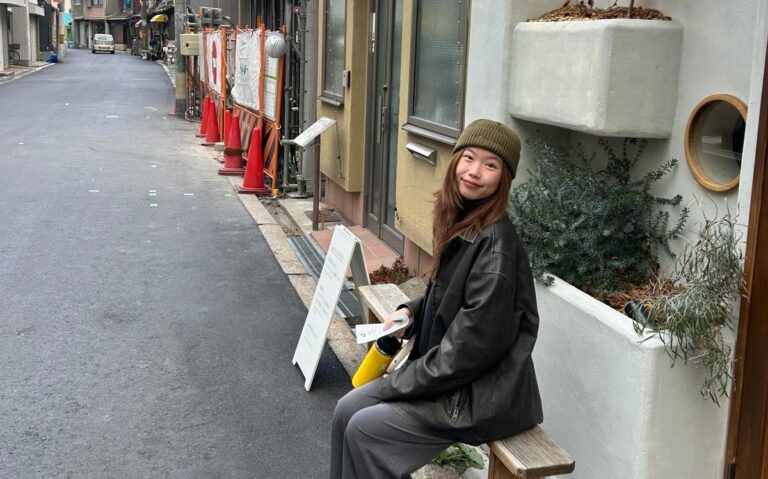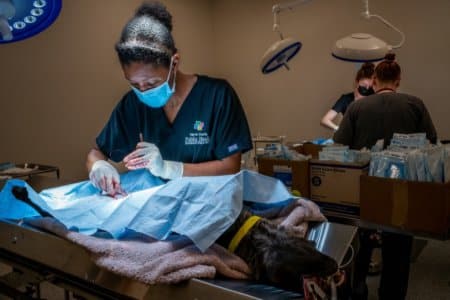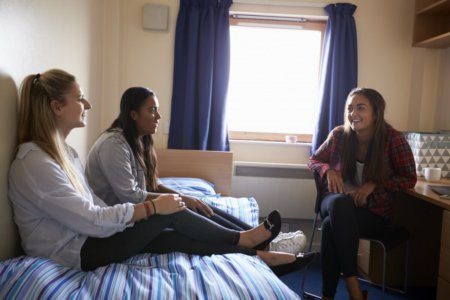
Leaving home is hard. But moving from the bustling hub of Singapore, where the city-state’s offerings are endless, to planting yourself down in rural Queensland, Australia, is enough to throw anyone off guard.
For Natalie Yeo, pursuing her veterinary degree at the University of Queensland’s (UQ) Gatton campus has been eye-opening, to say the least.
“Gatton is rural, and I was just very used to city life,” says Yeo.
However, obtaining her veterinary degree was just not possible in Singapore.
For all its world-renowned academic excellence (the National University of Singapore and Nanyang Technological University rank among the top 30 globally in the QS World University Rankings) and its high demand for veterinarians, none of its institutes offered a veterinary programme.
So for Yeo, pursuing her dreams meant stepping out of her comfort zone. Suddenly, life’s necessities were no longer a short walk away – almost everything required a bus or car ride.
“Here, once I’m done with school, I’m just done, and I stay home,” she shares.
The first year of her Bachelor of Veterinary Science (BVSc) degree was when homesickness hit the hardest. Living on campus blurred the line between school and personal life.
At this point, Yeo was even considering transferring out of UQ and moving to Sydney, where the hustle and bustle resembled life back home. She had friends from Singapore who were in the city too, making the grass appear much greener on the other side.
But the cost of living and pursuing a similar degree in Sydney was far too high, so Yeo gritted her teeth and gave Gatton another chance. She knew completing her BVSc at UQ was “the most straightforward route to becoming a recognised veterinarian.”

Earning a veterinary degree is hard work — ask any veterinary science student and they’ll say the same. Source: Natalie Yeo.
What it takes to pursue a veterinary degree
Few students complete high school with a clear vision of their life’s calling; however, Yeo always knew she wanted to pursue a veterinary degree.
“It was the only programme I was interested in,” she says. “I had no other alternatives in mind. Ever since I came across videos depicting the mistreatment of animals, I knew I wanted to be part of a community that provided animals with the proper care they deserve.”
“I want to learn more about veterinary science to equip others with the proper knowledge to care for animals.”
UQ was certainly the best place for the Singaporean to work towards her aspirations. It’s close enough to home and offers Australia’s only internationally accredited, five-year BVSc programme.
And while most people would immediately conjure the image of vets-to-be dealing with adorable household pets, the reality of pursuing a veterinary degree is more rigorous than it seems.
“If there were any presumptions about the programme, I’d say it’s that veterinary science students do not put in as much effort or have it easier than medical students, which is false,” says Yeo. “No matter what you choose as your programme, you need to put in effort to succeed.”
In Yeo’s experience, gaining a veterinary degree is an endless pursuit of knowledge and technical skills.
UQ’s BVSc programme demands precision, accuracy and near perfection. Students who fail a single course aren’t able to progress with the degree and are required to retake the course in the next academic year.
Especially since most courses are prerequisites for higher-level courses, commitment is key. Essentially, every lesson counts, and every skill must be sharpened to a knife’s edge.

At UQ, students must undertake 50 days of placements to earn their veterinary degree. Source: Natalie Yeo.
Practicals making up a veterinary degree
Household animals like cats, dogs, birds, and reptiles aren’t the only species taught in Yeo’s veterinary degree.
Like all of UQ’s BVSc students, Yeo has to complete 50 days of placement across various species before her third year ends. With exposure comes experiences and, more importantly, stories to reminisce.
From milking cows at five in the morning during the winter to watching the delivery of a baby goat, Yeo isn’t short on stories to share.
Her first placement took place in her second year on a cheese-producing sheep farm, an hour-and-a-half drive from her current accommodation. Back then, the farm’s host had graciously offered Yeo and her coursemates to stay on the property for their convenience.
“It was so cold,” laughs Yeo, recalling how the place was a former horse stable. “There was no proper insulation, and the cold winter wind would slip through the wooden slats and into the place. At night, it’d be two or three degrees, and we would all be freezing.”
It was ten days of milking sheep and cleaning the pens, and other farming practices, followed by nights huddled in their temporary accommodation.
Immediately after, Yeo and her coursemates embarked on their dairy cow placement. There, they’d be on the farm by 5 a.m. to milk the cows. Afternoons were dedicated to milking too.
“It was the middle of winter, and we had to milk with our bare hands,” says Yeo. “My hands hurt, but I had to be enthusiastic about the work. I couldn’t complain, so I’d be like, ‘Let’s go milk some cows!’”
Luckily for Yeo, she was mentally prepared to work with different species under such conditions due to the nature of her programme. Despite her end goal being to work with Singapore’s usual clientele of cats and dogs, she was open to exploring the ins and outs of the sector.
“We have to learn a few basic animals to graduate to prepare you for whatever you want to move on for work purposes,” she says. “I think back in Singapore, I would eventually like to work in the clinic for cats or dogs. But I wouldn’t say that I hated working with sheep, cows, and horses. Honestly, I enjoyed it.”
Within the 50 days of UQ’s BVSc placements, 30 days were dedicated to covering the mandatory species of horses, cows, and sheep. How students spend the remaining 20 days was entirely up to them, so Yeo chose goats.
It was labour-intensive work. Tasks included grooming and showering some of the overgrown goats and collecting the faecal samples of 145 goats to test for parasites.
“I think we spent a whole day just collecting poop,” Yeo shares reluctantly.
However, her enthusiasm quickly returned upon sharing her next memory.
“Because we were at a breeding goat farm, there were kids – baby goats – around, and we even saw one delivery on our first day. And since they were usually kept in pens, we’d arrive first thing in the morning and let them out to run around,” she enthuses. “They’re like puppies; it was so cute.”

Yeo (R) and a friend pictured with the baby goats during their placement for their veterinary degree. Source: Natalie Yeo.
UQ placements aren’t just delivered within Queensland.
During her semester breaks, Yeo, who frequently returns home to Singapore, took time to undergo recognised placements with local organisations like the Society for the Prevention of Cruelty to Animals (SPCA) Singapore and Bukit Timah Saddle Club.
These were some of her favourites.
Yeo found her horse placement to be the most fulfilling, especially after hearing how coursemates who completed their horse placements in Australia didn’t receive the same level of exposure as she did.
“I think it might be because the property owners didn’t want anything to happen to the horses, especially since it’s a very profitable industry,” explains Yeo. Meanwhile, she got to work on various tasks, including walking and grooming the horses.
“I feel I got more hands-on experience with horses in Singapore than I would have in Australia,” she says.

Yeo (pictured with the white cap) and her friends during a placement out in the field. Source: Natalie Yeo.
Preparations to play a part in Singapore’s veterinary scene
Despite the shortage of veterinarians in Australia, Yeo is determined to return to Singapore (which faces the same challenge) and open a clinic with the friends she made at UQ.
While Singapore’s veterinary scene is dominated by veterinarians who studied abroad, Yeo is prepared to push past the crowd and make her mark in the industry.
She might not be treating koalas and wallabies in Singapore, but she’ll be ready to join the ranks of expert veterinarians in the industry upon completing her degree.
“I want to try other specialisations, like emergency – it’s a field I’m quite interested in,” shares Yeo. “I want to try new things before I decide what to specialise in.”










